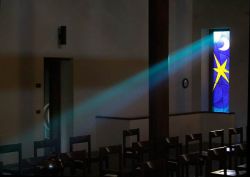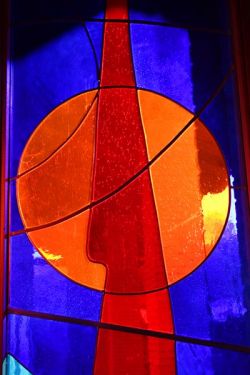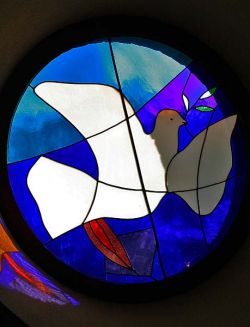Presentation of the Bose Psalter
g) Canticle of the New Testament
This is the traditional canticle of the “Benedictus” in the morning of the “Maginificat” in the morning, and of the “Nunc dimittis” at compline.
h) Contemplations and intercessions
These are prayers drawn from the treasure of all the Christian Churches and, on Saturday morning, from the prayer of the synagogue; they are introduced by a fitting invitatory verse taken from Scripture and adapted to the liturgical season. Morning contemplations are professions of faith, adoration, glorification, acclamation, and blessing of the One God or of the Lord Jesus Christ, while evening intercessions are prayer for all mankind, for the Churches, for the community, for our brothers and sisters. On Thursdays the contemplations are addressed to Christ, Lord and Pastor, and the intercessions have for their object the Church and her pastors: in particular, where is found N.N., this is a sign that here should be inserted the name of the pope, of the patriarchs, of the bishop, of other ministers of the Church, priests, deacons, missionaries, and of whoever presides over the community. On Fridays are commemorated Christ’s passion and death, the sufferings of Christians and of other men, while on Saturdays we pray in communion with the people of the first alliance, which has never been revoked, while awaiting the glorious coming of the Messias. On Sundays in the various offices is contemplated the mystery of the Father, of the Son, Jesus Christ Risen, of the life-giving Holy Spirit, while the great intercession of the Eucharistic liturgy gathers together the intentions of the faithful.
i) Free intentions
Every community, or every individual in the case of private celebration, ends the intercessions with a free prayer that mentions the needs of the moment. In this way the community presents to God the day’s happenings, commemorates loved ones, those who had asked its prayers, and also enemies and adversaries, as the Gospel demands (cf. Mt 5, 44; Lk 6, 28). This is to make the intercession fully meaningful for the present moment. It must be remembered that the formula of the intentions should be sober; it ought not become a monologue or acquire a length and importance that are excessive in relation to the rest of the office. Here too the community’s spiritual quality becomes evident!
j) Common oration and proper oration
The common oration is a collect that evokes the moment of the day (morning, evening), the work that awaits the Christian, the nightly rest, and, above all, the liturgical season that is being lived and its demands:
• vigilance and expectation in Advent
• joyful contemplation of the incarnation during the season of Christmas-Epiphany
• conversion, ascesis, and repentance in Lent
• joy of the resurrection at Eastertide
At Sunday vespers, on feasts and commemorations the common oration is replaced by a proper oration that inserts the prayer in the mystery being celebrated. The Sunday proper orations are taken from the Roman liturgy, retranslated from the Latin and sometimes retouched with elements from the ancient tradition. The proper orations, when they are not found in the proper liturgy, are in the lectionary (p.637ff) and in the sanctoral (p.709ff).


